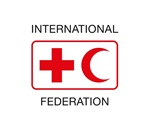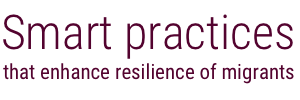A centre that provides information relevant to the asylum process to anyone who may need it, including migrants, lawyers, judges and government officials. It provides accurate, unbiased and up-to-date research on countries of origin, and is key to improving the effectiveness of the process and the quality of asylum decisions.
The Austrian Centre for Country of Origin and Asylum Research and Documentation (ACCORD) is an information centre that researches and provides up-to-date information on the countries of origin of asylum seekers. The information is for use in international protection procedures and can be provided to all involved parties, to ensure the fairness and efficiency of the procedures. ACCORD keeps a constantly updated record of human rights developments relevant to the 1951 Refugee Convention and other legal instruments that underpin international protection. Information is collected from publicly citable materials. A variety of sources are used, including international and regional human rights organizations, governments, the UN, international and local media, and online databases. ACCORD’s main activities are to provide research services (e.g., responses to case related requests, country reports), to manage a country of origin portal (www.ecoi.net), and to run country of origin trainings for eligibility officers, judges, lawyers, legal counsels, etc.
ACCORD is a department of the Austrian Red Cross and has been used by over 100 countries to make asylum decisions. It contributes to the protection of international human rights by providing accurate and timely information that can be trusted by all parties, which increases the likelihood that legitimate asylum claims will be correctly processed.
The online information system www.ecoi.net is used internationally by over 100 countries; research services provided to Austria and UNHCR.
Design. [P1] Protects legitimate but vulnerable asylum seekers from wrong asylum decisions caused by lack of access to good information. [P4] Recognizes the right of asylum seekers to a fair procedure.
- Balancing informational needs: the team has to work with vast amounts of information, and be capable of providing answers to very detailed questions.
- Training relevant stakeholders (eligibility officers, judges, lawyers, legal counsels, etc.) how to use the information system improves its effectiveness.
Smart practices
Smart practices report and database survey
About the report
People migrate in pursuit of a better life for themselves and their families. As described in the International Federation of Red Cross and Red Crescent Societies’ (IFRC) Policy on Migration, “migrants are persons who leave or flee their habitual residence to go to new places – usually abroad – to seek opportunities or safer and better prospects.
Read more
About the International Federation

